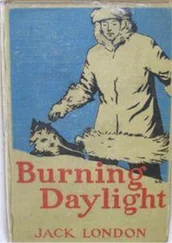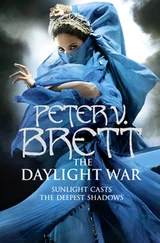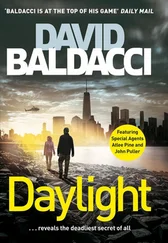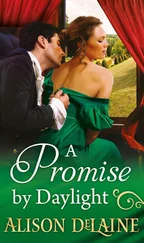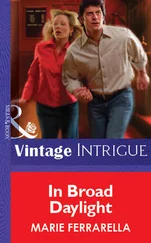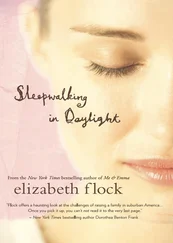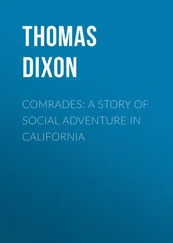Thomas Stribling - A Daylight Adventure
Здесь есть возможность читать онлайн «Thomas Stribling - A Daylight Adventure» весь текст электронной книги совершенно бесплатно (целиком полную версию без сокращений). В некоторых случаях можно слушать аудио, скачать через торрент в формате fb2 и присутствует краткое содержание. Жанр: Классическая проза, на английском языке. Описание произведения, (предисловие) а так же отзывы посетителей доступны на портале библиотеки ЛибКат.
- Название:A Daylight Adventure
- Автор:
- Жанр:
- Год:неизвестен
- ISBN:нет данных
- Рейтинг книги:4 / 5. Голосов: 1
-
Избранное:Добавить в избранное
- Отзывы:
-
Ваша оценка:
- 80
- 1
- 2
- 3
- 4
- 5
A Daylight Adventure: краткое содержание, описание и аннотация
Предлагаем к чтению аннотацию, описание, краткое содержание или предисловие (зависит от того, что написал сам автор книги «A Daylight Adventure»). Если вы не нашли необходимую информацию о книге — напишите в комментариях, мы постараемся отыскать её.
A Daylight Adventure — читать онлайн бесплатно полную книгу (весь текст) целиком
Ниже представлен текст книги, разбитый по страницам. Система сохранения места последней прочитанной страницы, позволяет с удобством читать онлайн бесплатно книгу «A Daylight Adventure», без необходимости каждый раз заново искать на чём Вы остановились. Поставьте закладку, и сможете в любой момент перейти на страницу, на которой закончили чтение.
Интервал:
Закладка:
T. S. Stribling
Although some of the work of southern author T(homas) S(igismund) Stribling (1881–1965) might be called local-color writing, the mainstream novels of this Pulitzer Prize winner are given substance by the author’s stance against racism and his talent for satire. Stribling was the product of Clifton, Tennessee, a small town where he lived for much of his life, and later another small town, Florence, Alabama. Typical of well-educated Southerners of his era, he became a teacher and a lawyer, and still found time to write. In his writing, he experimented with various forms, from a trilogy about life in the South to adventure stories set in exotic climes, such as Venezuela. Despite his 1933 Pulitzer for The Store, today he is best remembered for the detective stories in which he introduced the psychological sleuth Dr. Henry Poggioli.
Stribling’s stories of detection focus on the workings of the human mind as explained by Poggioli, an Ohio State University professor who specializes in psychology and criminology. The professor’s solutions of crimes depend less on interpreting physical clues and more on understanding human behavior.
Stribling published the first series of Poggioli stories in the pulp magazine Adventure in 1925 and 1926. Like Sir Arthur Conan Doyle, who became so weary of Sherlock Holmes that he killed him off, only to bring him back again, Stribling tired of his character and used Poggioli’s spectacular death as the climax of the “final” tale. But Stribling bowed to popular demand, revived the character, and began a second series in 1929 that took him through the early 1930s. A third, and final, series featured the professor’s activities from the end of World War II until 1957.
“A Daylight Adventure” is a good example of Stribling’s important contribution to the detective form. In it, psychology is at the center of the ratiocination with which the sleuth solves crimes. Stribling’s contribution was broader than that, however. He develops the mildly adversarial relationship between the sleuth and the narrator. And the sardonic wit that Stribling uses to illuminate rural southern society makes him an early exemplar of the detective novelist as regional writer and humorist.
A Daylight Adventure
The following notes concerning Mrs. Cordy Cancy were not made at the time of her alleged murder of her husband, James Cancy. Worse than that, they were not taken even at the time of her trial, but seven or eight months later at the perfectly hopeless date when Sheriff Matheny of Lanesburg, Tennessee, was in the act of removing his prisoner from the county jail to the state penitentiary in Nashville.
Such a lapse of time naturally gave neither Professor Henry Poggioli nor the writer opportunity to develop those clues, fingerprints, bullet wounds, and psychological analyses which usually enliven the story of any crime.
Our misfortune was that we motored into Lanesburg only a few minutes before Sheriff Matheny was due to motor out of the village with his prisoner. And even then we knew nothing whatever of the affair. We simply had stopped for lunch at the Monarch café in Courthouse Square, and we had to wait a few minutes to get stools at the counter. Finally, two men vacated their places. As Poggioli sat down, he found a copy of an old local newspaper stuck between the paper-napkin case and a ketchup bottle. He unfolded it and began reading. As he became absorbed almost at once in its contents, I was sure he had found a murder story, because that is about all the professor ever reads.
I myself take no interest in murders. I have always personally considered them deplorable rather than entertaining. The fact that I make my living writing accounts of Professor Poggioli’s criminological investigations, I consider simply as an occupational hazard and hardship.
The square outside of our cafe was crowded with people and filled with movement and noise. In the midst of this general racket I heard the voice of some revivalist preacher booming out through a loudspeaker, asking the Lord to save Sister Cordy Cancy from a sinner’s doom, and then he added the rather unconventional phrase that Sister Cordy was not the “right” sinner but was an innocent woman, or nearly so.
That of course was faintly puzzling — why a minister should broadcast such a remark about one of his penitents. Usually the Tennessee hill preacher makes his converts out to be very bad persons indeed, and strongly in need of grace, which I suppose most of us really are. Now to hear one woman mentioned in a prayer as “nearly innocent” was a sharp break from the usual.
I suppose Poggioli also caught the name subconsciously, for he looked up suddenly and asked me if the name “Cancy” had been called. I told him yes, and repeated what I had just heard over the megaphone.
The criminologist made some sort of silent calculation, then said, “Evidently Mrs. Cancy has had her baby and the sheriff is starting with her to the penitentiary in Nashville.”
I inquired into the matter. Poggioli tapped his paper. “Just been reading a stenographic account of the woman’s trial which took place here in Lanesburg a little over seven months ago. She was sentenced to life imprisonment, but she was pregnant at the time, so the judge ruled that she should remain here in Lanesburg jail until the baby was born and then be transferred to the state penitentiary in Nashville. So I suppose by this noise that the baby has arrived and the mother is on her way to prison.”
Just as my companion explained this the preacher’s voice boomed out, “Oh, Lord, do something to save Sister Cordy! Sheriff Matheny’s fixin’ to start with her to Nashville. Work a miracle, Oh, Lord, and convince him she is innocent. You kain’t desert her, Lord, when she put all her faith an’ trust in You. She done a small crime as You well know, but done it with a pyure heart and for Yore sake. So come down in Yore power an’ stop the sheriff and save an innocent woman from an unjust sentence. Amen.” Then in an aside which was still audible over the megaphone, “Sheriff Matheny, give us five minutes more. He’s bound to send Sister Cordy aid in the next five minutes.”
Now I myself am a Tennessean, and I knew how natural it was for a hill-country revivalist to want some special favor from the Lord, and to want it at once; but I had never before heard one ask the rescue of a prisoner on her way to Nashville. I turned to Poggioli and said, “The minister admits the woman has committed some smaller crime. What was that?”
“Forgery,” he replied. “She forged her husband’s will in favor of herself, then applied the proceeds to build a new roof on the Leatherwood church. That’s part of the court record.”
“And what’s the other crime — the one she claims to be innocent of?”
“The murder of her husband, Jim Cancy. She not only claims to be innocent, she really is. The testimony in the trial proved that beyond a doubt.”
I was shocked. “Then why did the judge condemn…”
The criminologist drew down his lips. “Because the proof of her innocence is psychological. Naturally, that lay beyond the comprehension of the jury, and the judge too, as far as that goes.”
I stared at my companion. “Can you prove her innocence, now, at this late date?”
“Certainly, if this paper has printed the court reporter’s notes correctly, and I’m sure it has.”
“Why, this is the most amazing thing I ever heard of — hitting in like this!”
“What do you mean ‘hitting in like this’?”
“Good heavens, don’t you see? Just as the sheriff is starting off with an innocent woman, just as the preacher is asking the Lord to send down some power to save her, here you come along at exactly the right moment. You know she is innocent and can prove it!”
Читать дальшеИнтервал:
Закладка:
Похожие книги на «A Daylight Adventure»
Представляем Вашему вниманию похожие книги на «A Daylight Adventure» списком для выбора. Мы отобрали схожую по названию и смыслу литературу в надежде предоставить читателям больше вариантов отыскать новые, интересные, ещё непрочитанные произведения.
Обсуждение, отзывы о книге «A Daylight Adventure» и просто собственные мнения читателей. Оставьте ваши комментарии, напишите, что Вы думаете о произведении, его смысле или главных героях. Укажите что конкретно понравилось, а что нет, и почему Вы так считаете.

